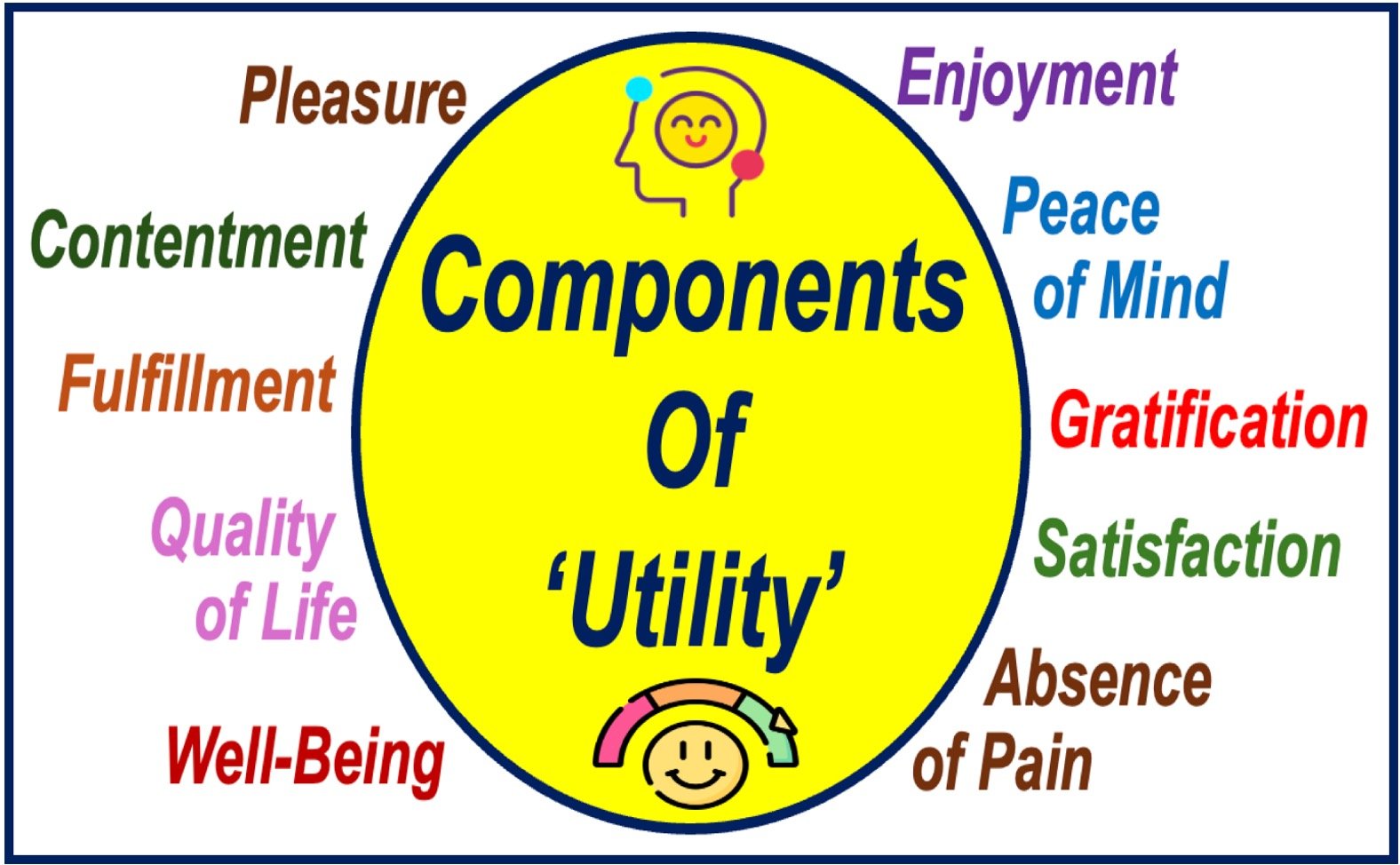Utilitarianism is an ethical philosophy that an action is right if it promotes happiness for the majority of people. The greatest happiness of the greatest number of people is the guiding principle of behavior. According to this doctrine, actions are morally right if their consequences lead to happiness.
Therefore, actions are morally wrong if they lead to unhappiness. Happiness and unhappiness also mean the absence of pain and the presence of pain respectively.
The Oxford Living Dictionaries say the following regarding the term:
“1. The doctrine that actions are right if they are useful or for the benefit of a majority.”
“2. The doctrine that an action is right in so far as it promotes happiness, and that the greatest happiness of the greatest number should be the guiding principle of conduct.”

Depends on circumstances
Whether actions lead to unhappiness or happiness depends on the circumstances.
For example, giving a dry biscuit to a starving man will reduce his pain. However, giving a dry biscuit to a man who is dying of thirst will increase his pain.

Saving a loving mother from drowning will make her, her husband, children, other relatives, and friends very happy.
However, what about saving a suicide bomber from drowning, especially if he is about to kill dozens of people? The action of saving him will result in great unhappiness.
Hence, under utilitarianism, no moral principle is necessary in itself, i.e., it is not absolute.
Utilitarianism and utility
Utilitarianism is an ethical theory that suggests that the best actions are those that maximize utility.
In economics, utility is the pleasure or satisfaction that people derive from consuming a product or service. The term may also refer to pleasure or satisfaction that people derive from being somewhere.

In economics, we can replace the terms ‘satisfaction and pleasure’ with ‘value for money.’
Economists use utility to measure pleasure or happiness and how it relates to the decisions we make. Specifically, decisions that we make as consumers.
Utility measures the benefits and disadvantages (drawbacks) of consuming a product or service. It also measures the benefits and drawbacks of participating in an event or experiencing something.
This measure directly influences demand, which subsequently determines the price of things.
Jeremy Bentham
Jeremy Bentham (1748-1832), a British philosopher, social reformer, and jurist, founded utilitarianism. He described utility as the sum of all pleasures an action brings minus all the suffering that it brings.

Philosophers say that utilitarianism is a version of consequentialism. Consequentialism states that the consequences of an action are the only standard of right and wrong.
However, utilitarianism, unlike other forms of consequentialism, takes into account the interests of everybody equally.
Utilitarianism – different schools of thought
Believers in utilitarianism disagree on several points. Some believe that we should choose actions according to their likely results.
Others, however, insist that agents should conform to rules that maximize utility.

Proponents also disagree on whether we should maximize average or total utility. There are many schools of thought.
Utilitarianism has been applied to social welfare economics and the global poverty crisis. We have also applied it to the ethics of raising animals for food.
Video – What is Utilitarianism?
This video, from our sister YouTube Channel – Marketing Business Network – explains what “Utilitarianism” is using easy-to-understand language and examples:
